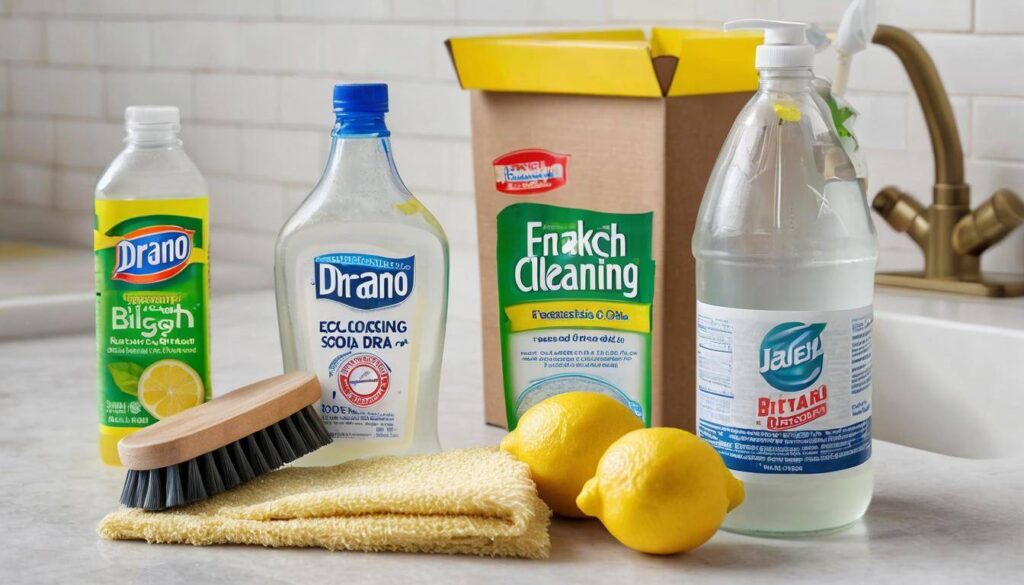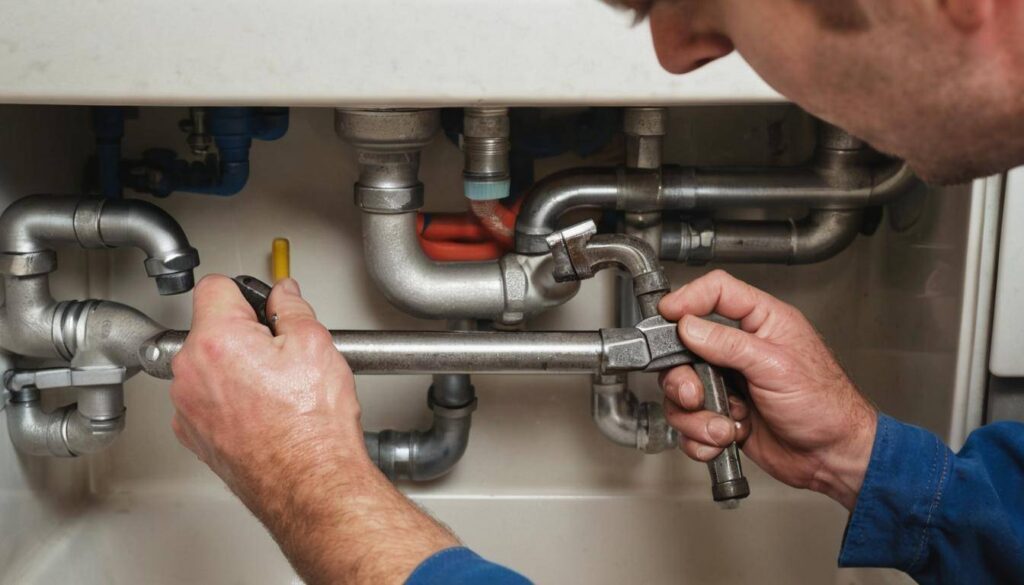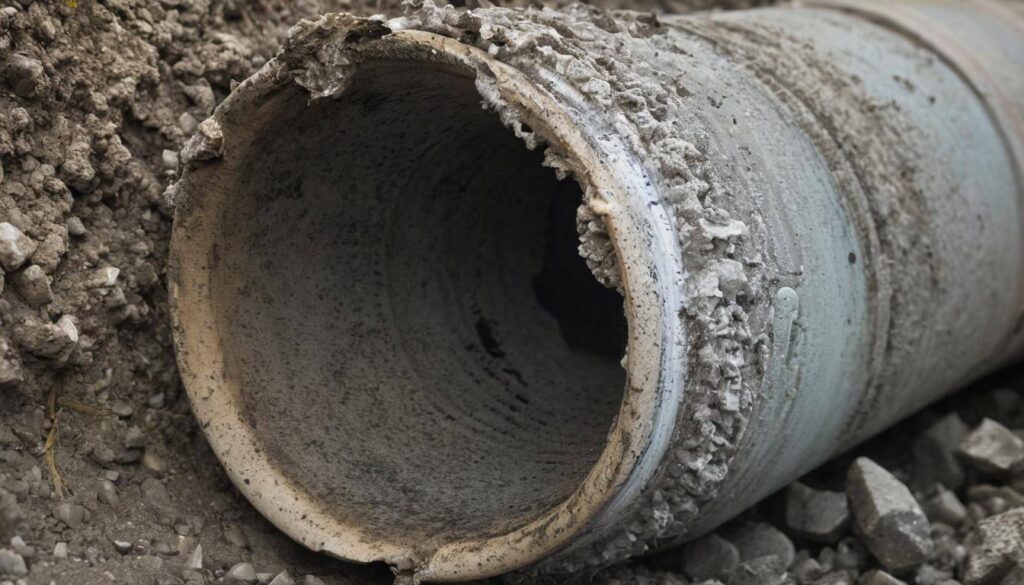Water heaters are an indispensable component of modern households, providing the convenience and comfort of hot water for various daily activities. From taking warm showers to washing dishes and doing laundry, water heaters play a crucial role in ensuring our daily routines run smoothly.
They have become an integral part of our homes, quietly working behind the scenes to meet our hot water needs. However, like any other appliance, water heaters are not immune to problems.
One common issue that homeowners may encounter is a leaking water heater. A leaking water heater can be a cause for concern as it not only disrupts the proper functioning of the unit but also raises questions about its potential need for replacement.
A Vital Appliance: The Importance of Water Heaters in Households
To truly appreciate the significance of water heaters in households, one must understand the transformative impact they have had on our lives. Before their invention, obtaining hot water required laborious and time-consuming methods such as boiling it on stovetops or using rudimentary heating methods. The advent of water heaters revolutionized domestic life by providing a consistent supply of hot water at the turn of a tap.
This breakthrough technology has made mundane tasks significantly more manageable and comfortable. Whether it’s starting your day with an invigorating warm shower or effortlessly cleaning stubborn stains off dishes with hot soapy water, there is no doubt that having access to hot running water enhances our quality of life and contributes to overall well-being.
The Troubling Dilemma:
Leaking Water Heaters and Their Potential Need for Replacement
A leaking water heater can quickly become a cause for alarm as it jeopardizes both the functionality and structural integrity of this essential appliance.
Recognizing the signs indicating a leak is paramount in order to prevent further damage and determine whether replacement is necessary. While a small drip or minor leakage may seem inconsequential at first glance, it can be indicative of underlying issues that may worsen over time.
Additionally, leaks can manifest themselves in various forms, ranging from visible puddles or dampness around the unit to more subtle signs like a sudden decrease in hot water supply or unexplained increases in utility bills. Understanding the potential need for replacement is crucial as homeowners must consider both short-term and long-term implications.
Deciding whether to repair or replace a leaking water heater requires careful evaluation of factors such as the severity of the leak, the age of the unit, and cost comparisons between repairs and investing in a new system. By exploring these considerations, homeowners can make informed decisions that ensure their homes are equipped with reliable and efficient hot water systems.
Understanding the Functioning of a Water Heater in Calgary
Unraveling the Intricacies of Water Heater Operation
To comprehend whether a leaking water heater necessitates replacement, it is vital to grasp the inner workings of this indispensable appliance. A water heater primarily consists of three fundamental components: a heating element or burner, a storage tank, and various safety mechanisms.
The functioning begins when cold water enters the tank through an inlet pipe. The heating element, powered by electricity or fueled by gas, then initiates its operation.
In electric models, the element warms up using electrical resistance, while in gas-powered heaters, a burner ignites to produce flames that heat surrounding water. Once activated, the heating mechanism elevates the temperature within the storage tank to a pre-set level determined by a thermostat.
This warmed water remains inside until it is needed for showers, washing dishes, or other household chores. As hot water gets dispensed from an outlet pipe connected to the tank, fresh cold water enters simultaneously to maintain an adequate supply.
An Overview of Different Types of Water Heaters
Water heaters come in various designs and configurations tailored to meet different needs and preferences. Two prevalent types are tankless and storage tank heaters. Tankless water heaters offer an innovative solution by providing hot water on-demand without requiring a storage unit.
Instead of continuously keeping large amounts of hot water available like their traditional counterparts (storage tanks), these units heat incoming cold water as it flows through internal coils or heat exchangers. Tankless systems boast remarkable efficiency as they eliminate standby energy losses associated with maintaining stored hot water temperature constantly.
On the contrary, storage tank heaters remain widely used due to their reliability and cost-effectiveness. These conventional models store heated water in insulated tanks until required for use throughout your household appliances and fixtures.
They are available in various sizes and capacities to accommodate different household sizes and hot water demands. Understanding how water heaters operate and the differences among various types enables us to explore further whether a leaking water heater necessitates immediate replacement or if there are potential repair options.
Signs and Causes of a Leaking Water Heater
Identification of visible signs indicating a leaking water heater (e.g., puddles, dampness)
One of the most evident and undeniable signs of a leaking water heater is the presence of puddles or significant dampness around the unit. If you notice water pooling near the base or surrounding area, it is crucial to investigate further. Additionally, inspecting the floor beneath and around the water heater can help identify any hidden leaks that may not be immediately apparent.
Keep in mind that leaks can vary in severity; it could range from small drips to steady flows depending on the extent of damage. Another sign to look out for is any discoloration or staining on walls, ceilings, or nearby pipes.
These stains often indicate prolonged exposure to moisture and may signify an ongoing leak from your water heater. Furthermore, keep a keen eye on any unexplained increase in your water bill as this could also be an indication of a leaking unit.
Discussion on potential causes such as corrosion, faulty valves, or excessive pressure
Several factors can lead to a leaking water heater; understanding these potential causes is crucial in determining whether repair or replacement is necessary. One common cause is corrosion within the tank itself.
Over time, minerals present in water react with the tank’s interior lining, causing it to deteriorate and develop small holes through which leakage occurs. Faulty valves are another frequent culprit behind leaks.
The temperature-pressure relief valve (TPR valve), which safeguards against excessive pressure buildup inside the tank, might malfunction due to sediment buildup or age. A faulty TPR valve can cause pressure imbalances leading to leaks.
Additionally, excessive pressure within your plumbing system can put stress on your water heater’s connections and joints, causing them to weaken over time and result in leakage. High-pressure spikes may occur due to thermal expansion, closed water supply valves, or even a malfunctioning pressure regulator.
It is important to note that these are just a few potential causes of water heater leaks. Properly diagnosing the specific issue requires careful inspection and evaluation by a professional plumber in order to determine the most appropriate course of action.
Assessing the Severity and Location of the Leak
Explanation on how to determine the severity and location of the leak (e.g., small drip vs. significant flow)
When faced with a leaking water heater, it is crucial to assess both the severity and location of the leak to gauge its potential impact on your system. The first step in this process is to carefully observe the leaking area.
Consider whether it is a small drip or a more substantial flow of water. A small drip may indicate a minor issue, such as a loose connection or valve, while a significant flow could suggest a more severe problem like a ruptured tank.
Take note of how fast water is escaping and whether it increases when you turn on specific valves or appliances connected to the water heater.
Additionally, pay attention to any accompanying sounds or odors that may help in identifying the source and extent of the leak.
For instance, if you hear hissing or bubbling noises near the tank, it could indicate pressure-related issues within the unit. Conversely, if you notice foul smells resembling rotten eggs, there might be a gas leak from an associated component like the gas control valve.
Importance of identifying whether the leak is originating from fittings, valves, or tank itself
Identifying where exactly the leak originates from within your water heating system holds great significance as it aids in determining possible repair solutions and assessing potential risks accurately. Leaks can typically stem from three primary areas: fittings (such as pipes connecting various components), valves (including temperature relief valves), or directly from cracks in the tank.
If you find that leakage originates around fittings, there’s a good chance that tightening connections or replacing faulty gaskets will resolve the issue. Similarly, if valves are responsible for leaks due to wear and tear over time or excessive pressure buildup, replacing them might be necessary.
However, if the tank itself is leaking, it usually indicates a more severe problem. Cracks or corrosion in the tank can lead to substantial water damage and potential structural failures.
In such cases, repair options become limited, and replacement may be the most viable solution to avoid further complications. By accurately assessing the severity of the leak and pinpointing its origin, homeowners can make informed decisions about whether they can perform DIY repairs or if professional assistance is required.
Potential Repairs for a Leaking Water Heater
Overview of possible DIY repairs for minor leaks
When faced with a minor leak in your water heater, there are a few simple repairs that you can attempt on your own before seeking professional assistance. One common cause of leaks is loose connections.
Over time, the fittings and joints within the water heater system may become loose due to regular usage or natural wear and tear. To address this issue, start by turning off the power supply to the water heater and shutting off the water inlet valve.
Inspect all visible connections, such as those between pipes, valves, or pressure relief mechanisms. If you notice any loose fittings, gently tighten them using an appropriate wrench or pliers.
Another potential DIY repair for minor leaks involves replacing faulty valves. The temperature and pressure relief valve is an essential component of a water heater that prevents excessive pressure buildup inside the tank.
If this valve is leaking, it may need to be replaced to ensure proper functionality and prevent further damage. Begin by turning off the power supply and closing the cold-water inlet valve to stop the flow of water into the tank.
Next, locate the temperature and pressure relief valve on top of the unit or along one side. Place a container underneath to catch any residual water that may escape when removing it.
Using an adjustable wrench or pliers, carefully loosen and remove the old valve by turning it counterclockwise. Install a new valve by attaching it firmly but not overly tight in a clockwise direction.
Discussion on when professional intervention might be necessary (e.g., complex repairs involving internal components)
While some leaks can be fixed with basic DIY repairs, certain situations call for professional intervention due to their complexity or potential risks involved with handling internal components. If you have attempted simple fixes without success or if the leaking persists, it is best to contact a licensed plumber or water heater technician.
Professionals possess the expertise to diagnose and address issues that may require specialized tools or extensive repairs. Complex leaks that originate from internal components, such as a faulty pressure relief valve or a cracked tank, are best left to professionals.
Repairing these internal problems demands technical skill and knowledge to ensure proper functioning and avoid further damage. Additionally, attempting intricate repairs without proper training can be hazardous, as it may involve dealing with electrical connections or gas lines in some cases.
While some minor leaks in water heaters can be resolved through simple DIY repairs like tightening connections or replacing valves, more complex issues involving internal components should be handled by professionals who possess the necessary expertise and experience. It is crucial to consider your own capabilities and safety when deciding whether to attempt repairs yourself or seek professional assistance.
Evaluating Safety Risks Associated with a Leaking Water Heater
A leaking water heater poses several potential hazards that need to be carefully evaluated. One significant risk is the possibility of electrical shock.
Since water heaters are typically connected to an electrical power source, any leakage can expose the wiring to water, leading to electrocution hazards. It is vital to exercise extreme caution and avoid touching or coming into contact with a leaking unit without first shutting off the power supply.
Another concern associated with a leaking water heater is the growth of mold and mildew. The presence of moisture from the leak can create an ideal environment for mold spores to thrive, especially in dark and damp areas surrounding the appliance.
Mold growth not only contributes to unpleasant odors but also poses health risks such as allergic reactions and respiratory problems. Therefore, prompt action must be taken when addressing a leaking water heater to prevent these safety risks from escalating.
Considering Factors for Replacement
A: Age and lifespan considerations – average lifespan of different types
When deciding whether to replace a leaking water heater, age and lifespan considerations play a crucial role. On average, traditional storage tank water heaters have a lifespan of around 10-15 years, while tankless models tend to last approximately 20 years or longer. If your leaking unit is approaching or has exceeded its expected lifespan, it might indicate that replacement is more practical than investing in repairs.
B: Cost-benefit analysis – evaluating repair costs versus replacement costs
In order to make an informed decision regarding repair or replacement, conducting a cost-benefit analysis is essential. Compare the estimated costs of repairing your leaking water heater against purchasing a new one.
Keep in mind that if multiple components are failing or if there are underlying issues contributing to the leak, repair expenses can quickly accumulate. In such cases, it might be more cost-effective to invest in a new, more energy-efficient unit that will save you money in the long run.
C: Energy efficiency – comparing energy consumption between old and new
Energy efficiency is an important factor to consider when contemplating water heater replacement. Older models tend to be less energy-efficient compared to newer units, which utilize advanced technology and insulation techniques.
By upgrading to a more energy-efficient water heater, you can potentially reduce your monthly utility bills and decrease your environmental impact. When evaluating the need for replacement, consider the potential long-term savings in energy costs that a newer model can provide.
Conclusion
Evaluating whether a leaking water heater needs to be replaced requires careful consideration of several factors. Safety risks associated with electrical shock and mold growth must not be overlooked, emphasizing the importance of taking appropriate precautions when dealing with a leaking unit.
Age and lifespan considerations highlight the need to assess whether the appliance has reached its expected life expectancy or is nearing it. Furthermore, conducting a cost-benefit analysis by comparing repair costs against replacement costs allows for an informed decision based on financial feasibility.
Considering the benefits of energy efficiency encourages homeowners to choose newer models that offer long-term savings while reducing their environmental footprint. Ultimately, addressing a leaking water heater promptly ensures both safety and peace of mind for households while making thoughtful decisions regarding repair or replacement helps optimize functionality and efficiency in the long run.



